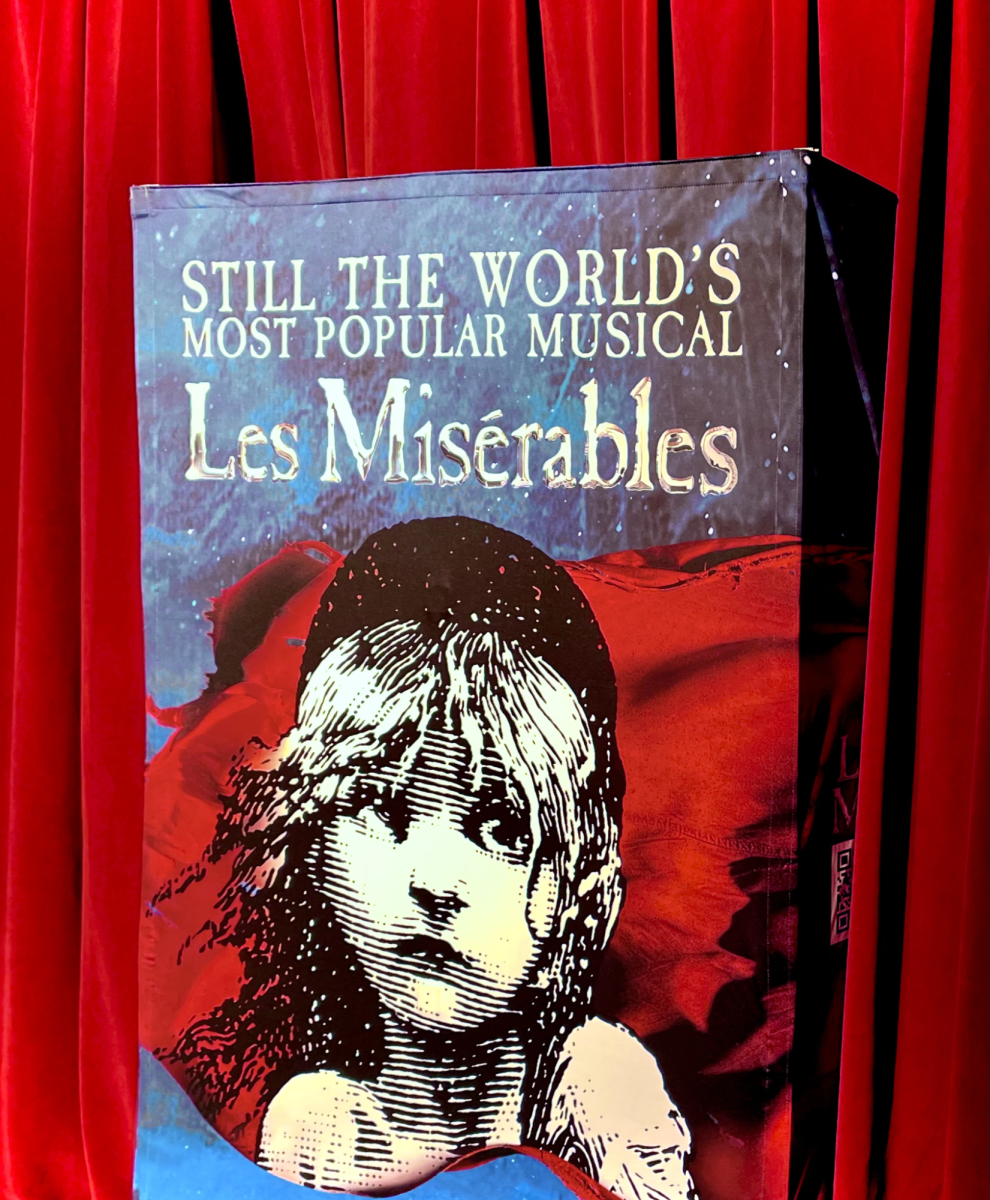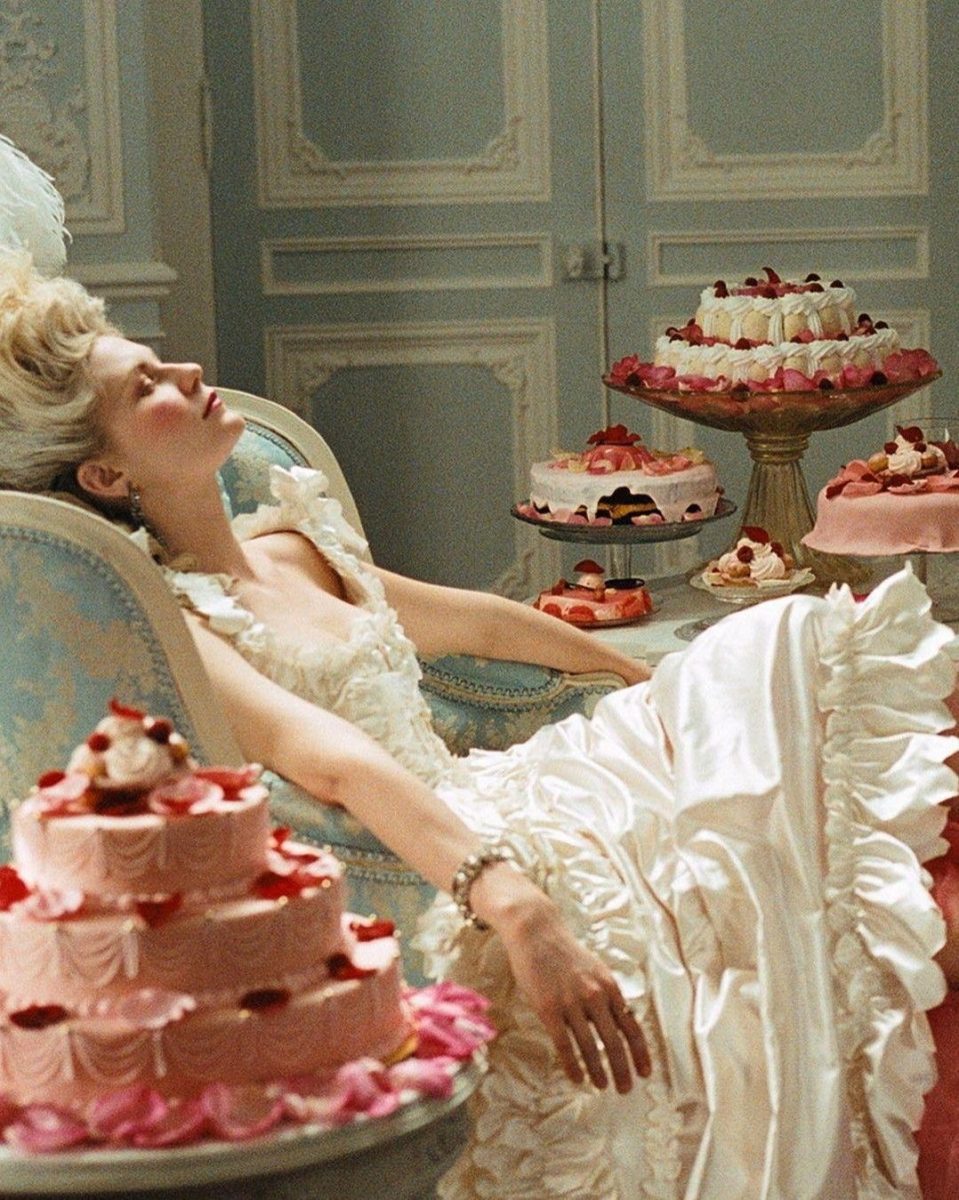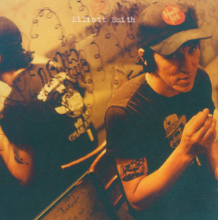You walk into the Segerstrom Center for the Arts, and in every corner you look there are wonders to behold. From the enormous stages to contemporary art and modern design, your eyes have plenty to marvel over. You are in the bustling crowd with beautiful sounds from the musicals gracing your ears as you shuffle your way to your seats. The anticipation builds as the lights dim and all conversations diminish. The curtain opens and your play begins.
Jean Valjean, the main character of the musical production Les Misérables, based on Victor Hugo’s novel, lives in France and has been arrested for stealing bread. He goes to prison for nineteen years as a result of his wrongdoings, and this has hardened both his heart and soul. When he breaks parole, a policeman named Javert relentlessly pursues him. Les Misérables is the story of how Valjean redeems himself, showing generosity and kindness toward others.
Now Valjean is free from imprisonment; however, while being rejected and struggling to find a place to stay, he is told to try a priest’s home. This priest named Myriel causes Valjean to have an epiphany; he learns to be kind and earns enough money to do so with the two silver candle sticks gifted to him by the older man. Then, Jean Valjean changed his name to M. Madeleine so that he could have a fresh start. He is kind but refuses anything in return. Due to his welcoming and generous nature, he becomes mayor. The musical is entertaining, with excellent songs and astoundingly accurate sets. The sets are large and extremely convincing because they are so realistic.
Another character included in the play is Fantine, a young mother who has to give up her child to cruel innkeepers: the Thénardiers. They take Fantine’s child, Cosette, at Fantine’s expense and force the young child to work and clean. They steal all her clothes and give them to their daughter, Éponine. To support Cosette, Fantine sells her hair, teeth, and sells herself. This scene’s song, “I Dreamed a Dream” is exceptional and tragic. It conveys her emotions seamlessly and beautifully. When Valjean sees this, he decides to take the child and raise her when Fantine finally dies. Years later, Marius, the grandson of a Baron, falls in love with Cosette and tries to find her; however, now that the Thénardiers have lost Cosette, they have to turn to a life of crime and poverty when their small inn closes. Éponine falls in love with Marius in a tangled web of love and despair when her love is not reciprocated.
Les Misérables is a heartbreaking but great musical with unforgettable songs and a powerful message. It is engaging and forces the viewer to be empathetic and see the anguish in people’s lives during the countless rebellions in France. Claude-Michel Schönberg, Jean-Marc Natel, and Alain Boublil are the writers and composers of this masterpiece, first written in French and performed in the Opéra de Paris in 1980.
Jean Valjean is now wealthy because of his new position as mayor. He and the young girl live a happy life. Surprisingly, Javert, the new police inspector, arrests the mayor because he knows that M. Madeleine is an alias and his real name is Jean Valjean. As a result, the pair run away to Paris with the large sum left and live calmly there for years until Cosette grows up to be sixteen years old.
However, at the same time, in Paris, a revolution was beginning: the June Rebellion. Valjean goes undercover and fights for the people of France. The group, including Marius, fights behind a barricade, and fighters drop like flies. Even a small child named Gavroche dies while trying to obtain more ammunition from dead soldiers. When there is no one left but Valjean and a young man named Marius, who are alive, the valiant Jean Valjean saves Marius Pontmercy’s life while dragging him to the sewers not to get caught by the police.
Surprisingly, Marius is Cosette’s secret lover. They fell in love at first sight, but Marius never knew where she lived, so he befriends Éponine Thénardier – now forced to a life of extreme poverty – to find the love of his life. In my opinion, I love the Thénardiers. I find the parents, especially in the beginning, amazing due to their comical voices and scenes. They bring joy to the morose play and stay true to their characters. However, in Victor Hugo’s original novel, these two characters were more frightening and evil than humorous.
In the story, Éponine loves Marius and is highly jealous of Cosette, so she decides to risk her life in the revolt, where the small revolution sends her to her deathbed. Although this is startling to the young baron, he still loves Cosette. One day, Valjen catches them together. He is angry at first but later is supportive. Marius and Cosette then proceed to get married. When Jean Valjean is then part of the family, he proceeds to tell the truth to his child that he is not her biological father. He then banishes himself to the other side of the city, where he becomes old and frail. When Cosette and Marius finally find him, Valjean dies and joins Fantine and Gavroche in Heaven in the closing scene.
I find the play extraordinarily emotional and powerful. The message that Hugo sent through the book was also conveyed through the play, and I find it a success. I particularly enjoyed the set designs. They are so realistic and grandiose that from where I was seated in the very back, one would perfectly know where the characters are and be glued to your seat. Additionally, the actors are incredibly professional, with voices that resonate throughout the hall. Nick Cartell, the actor for Jean Valjean, has one of the most powerful singing voices I have ever heard. Les Misérables reveals Valjean’s willingness to live and his selflessness. The viewer learns that anyone can be a good person and that you shouldn’t expect a reward.








Joseph Grouse | Feb 25, 2024 at 4:45 pm
Jo
Joseph Grouse | Mar 20, 2024 at 6:51 pm
Broadway musical Les Miserables
Actor jean vaijean character
Daughter